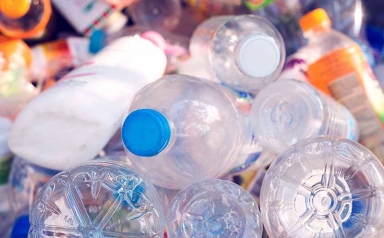CPCB (Central Pollution Control Board) has undertaken comprehensive measures to give effect to India's commitment to ban identified Single Use Plastic (SUP) items by 30th June, 2022, to realise Prime Minister's clarion call to phase out SUP.
CPCB’s multi-pronged approach as part of its comprehensive action plan encompasses measures to reduce supply of raw materials, demand side measures to reduce plastic demand, enabling measures to promote alternatives to SUP, digital interventions for efficient monitoring and to create awareness, and guidance to state boards for effective implementation of directions.
As per the Plastic Waste Management (PWM) Rules, 2016, there is a complete ban on sachets using plastic material used for storing, packing or selling gutkha, tobacco, and pan masala. As per PWM (Amended) Rules, 2021, the manufacture, import, stocking, distribution, sale and use of carry bags made of virgin or recycled plastic less than seventy five microns has been banned with effect from 30th September, 2021 as opposed to fifty microns recommended earlier under PWM Rules, 2016.
Additionally, the notification of 12th August 2021, prohibits manufacture, import, stocking, distribution, sale and use of the following identified single use plastic items, which have low utility and high littering potential with effect from the 1st July, 2022.
To curb the supply of identified items, directions have been issued at national, state, and local level. For example, all leading petrochemical industries do not supply plastic raw materials to the industries engaged in banned SUP production. Additionally, directions have been issued to SPCB/PCCs to modify/revoke consent to operate issued under air/water Act to industries engaged in banned SUP production. Customs authorities have been asked to stop the import of banned SUP items.
To complete the loop, local authorities have been directed to issue fresh commercial licenses with the condition that SUP items shall not be sold on their premises and the existing commercial licenses shall be cancelled, if entities are found to be selling banned SUP items.
As an alternative to the existing supply, enabling measures for promoting alternatives to SUP are being actively pursued. CPCB has already issued one-time certificates to around 200 manufacturers of compostable plastic. These certificates do not require renewal which is in line with the ease-of-doing business policy of the Government.
Further, an Online portal has been developed to facilitate certification of these manufacturers. To support the MSMEs, CPCB in association with CIPET is organizing Workshops for MSMEs across the country to transition to alternatives to SUP. Three such Workshops have been held at Ranchi, Guwahati, and Madurai. Development of alternatives to petroleum based plastics is also being pursued in collaboration with leading technical institutions like IISc and CIPET.
On the demand side, directions have been issued to E-commerce companies, leading single use plastic sellers/users, and plastic raw material manufacturers with respect to phasing out of identified single use plastic items. To encourage citizens to partake in the efforts, SPCB’s and local bodies are organizing large scale awareness drives with participation of all citizens – students, voluntary organisations, self-help groups, local NGOs/CSOs, RWAs, market associations, corporate entities, etc.
Previously, CPCB conducted surprise inspections of Gutkha/Pan Masala manufacturing industries across the country to check usage of plastic in packaging of their product. To create an enabling support system, CPCB is handholding the State Boards to operationalise the advisories issued by conducting meetings so that all the Urban local bodies in the respective states are able to effectively implement the guidelines with their help. Regional Workshops with SPCBs/PCCs in addition to a Central Workshop with Chairpersons of all SPCBs/PCCs is being organised in June 2022.
Finally, multiple digital interventions have been made to increase efficiency at scale. To enable citizen participation, an SUP Public Grievance App was launched by Minister EF&CC, Bhupender Yadav. The app has geotagging features with facility to track complaints. An SUP Compliance Monitoring Portal for filing of Reports by State/UT Authorities in compliance with Comprehensive Directions issued by CPCB for a bird’s eye view of progress and day-to-day monitoring.
